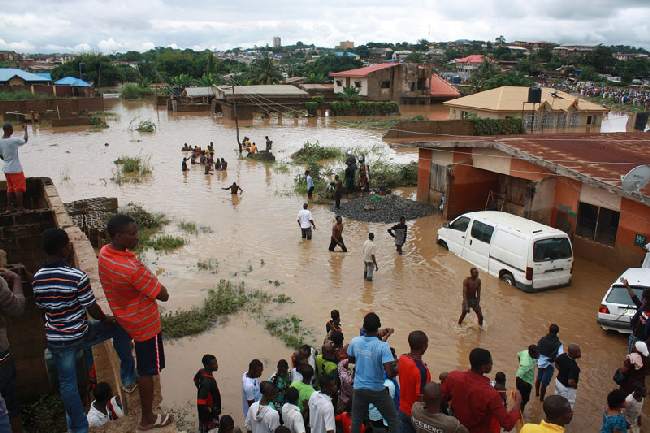Mr Adeyemi Abidemi, the Permanent Secretary, Lagos State Ministry of Environment, on Tuesday, said the State Government would soon make flooding a thing of the past in the state.
Abidemi made this disclosure in Lagos at a two-day stakeholders’ summit, organised by the ministry, with the theme, the Negative Impact of Flooding of Ogun River on adjoining towns and villages in Lagos State.
In a paper entitled: ‘The General Overview of Flooding Issues in Lagos State’, Abidemi identified human activities, as one of the major factors that could be responsible for incessant flooding in the state.
According to him, human activities are often not friendly to the environment and may block drainages.
“Some of the human activities include; challenge of solid waste management, physical development issues, damage to drainage facilities, deforestation (search for fossil fuel) and urbanisation,” he said.
The Permanent Secretary, however, said that these activities could be controlled, using the instruments of law, policy formulation and appropriate institutional framework.
“Flood occurs when there is heavy rain and the discharge is so high that the cross sections of the existing flood control infrastructure (drains) are unable to contain the run-off.
“Lagos State has only one estuary mouth; this estuary is the Commodore channel at Onikan and near the Bar beach that discharges the entire content of the Lagos lagoon, Badagry creek, Lekki creek and Ologe lagoon into the Atlantic Ocean,’’ he said.
He identified the causes of flooding, to include, flat topography and low elevation; relative to Mean Sea Level, climate, and hydrology and soil characteristics.
Others include, haphazard physical development (land use plan and development), illegal development along channel alignment, as well as sedimentation in canals and drains, due to ineffective solid waste management systems.
Also listed are, shoreline modification, reclamation and high water table.
Abidemi said the State Government had identified the challenges the environment and storm water posed to humanity and had taken measures to address them through policies and programmes; enlightenment campaigns, mitigation and adaptation. (NAN)
OKU/AOS/YEMI




 Premier League
Premier League